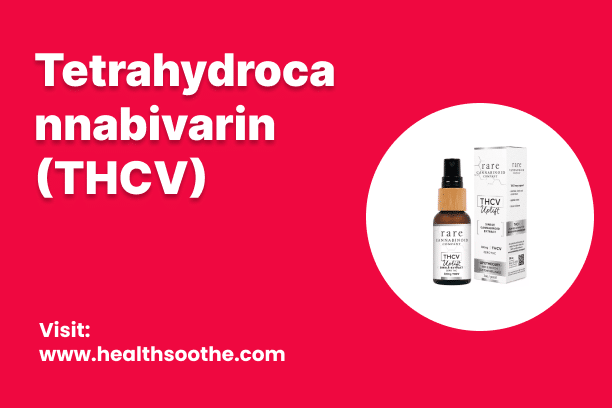The I10 pill is a combination medication that contains hydrocodone and ibuprofen. Hydrocodone is a narcotic pain reliever, while ibuprofen is an over-the-counter pain reliever and anti-inflammatory. The I10 pill is used to relieve moderate to severe pain.
The I10 pill is not available over the counter. It must be prescribed by a doctor. The I10 pill is not recommended for children under the age of 12.
The I10 pill can cause side effects, including drowsiness, dizziness, nausea, vomiting, constipation, and stomach upset. More serious side effects, such as liver damage and addiction, can also occur.
How does the I10 pill work?
Ibuprofen is an over-the-counter pain reliever and anti-inflammatory that works by blocking the production of certain chemicals that cause pain and inflammation.
The I10 pill can cause side effects, including drowsiness, dizziness, nausea, vomiting, constipation, and stomach upset. More serious side effects, such as liver
Here is a explanation of how hydrocodone and ibuprofen work:
Hydrocodone
- Hydrocodone is a narcotic pain reliever that works by binding to opioid receptors in the brain. Opioid receptors are proteins that are found on nerve cells throughout the body. When hydrocodone binds to these receptors, it sends a signal to the brain that tells the brain to reduce the perception of pain.
- Hydrocodone is a powerful pain reliever, but it can also be addictive. It is important to use hydrocodone only as prescribed by your doctor and to never take more than the prescribed dose.
Ibuprofen
- Ibuprofen is an over-the-counter pain reliever and anti-inflammatory that works by blocking the production of certain chemicals that cause pain and inflammation. These chemicals are called prostaglandins. Prostaglandins are involved in the inflammatory response, which is the body's way of healing itself after an injury or illness.
- Ibuprofen is a non-steroidal anti-inflammatory drug (NSAID). NSAIDs work by blocking the production of an enzyme called cyclooxygenase (COX). COX is involved in the production of prostaglandins. By blocking COX, NSAIDs reduce the production of prostaglandins and, therefore, reduce pain and inflammation.
Read Also: Different Types Of Birth Control Pills Available In Singapore
What are the uses of the I10 pill?
The I10 pill can be used to treat a variety of conditions that cause pain, including:
- Postoperative pain
- Pain from injuries
- Pain from chronic conditions such as arthritis or cancer
- Pain from dental procedures
- Migraine headaches
The I10 pill is not recommended for children under the age of 12. It is also not recommended for people who are pregnant or breastfeeding.
What are the side effects of the I10 pill?
The I10 pill, also known as hydrocodone-ibuprofen, is a combination medication that can cause a variety of side effects. Some of the most common side effects of the I10 pill include:
Here are some tips for reducing the risk of side effects from the I10 pill:
- Take the lowest effective dose.
- Take the pill with food.
- Do not take more than the recommended dose.
- Do not take the pill if you are pregnant or breastfeeding.
- Tell your doctor about all of your other medications.
What are the interactions of the I10 pill with other medications?
Some of the most common interactions include:
- Warfarin: The I10 pill can increase the risk of bleeding in people taking warfarin.
- Other pain medications: The I10 pill can increase the risk of side effects from other pain medications, such as drowsiness and dizziness.
- Antidepressants: The I10 pill can increase the risk of serotonin syndrome in people taking antidepressants.
- NSAIDs: The I10 pill can increase the risk of stomach bleeding in people taking other NSAIDs, such as aspirin or naproxen.
- Alcohol: The I10 pill can increase the risk of drowsiness and dizziness in people drinking alcohol.
How to take the I10 pill safely?
Here are some tips on how to take the I10 pill safely:
- Take the lowest effective dose. The more you overdose, the more likely you are to experience side effects.
- Take the pill with food. This will help reduce stomach upset.
- Do not take more than the recommended dose. Overdoses can be fatal.
- Do not take the pill if you are pregnant or breastfeeding.
- Tell your doctor about all of your other medications. The I10 pill can interact with other medications.
- Be aware of the side effects of the I10 pill. If you experience any side effects, stop taking the pill and contact your doctor immediately.
What are the alternative treatments for toothache?
Toothache is a common problem that can be caused by a variety of factors, including cavities, gum disease, and tooth decay. While there are many over-the-counter and prescription medications that can help relieve toothache pain, some people prefer to try alternative treatments.
Here are some alternative treatments for toothache:
- Saltwater rinses: Saltwater is a natural antiseptic that can help kill bacteria and reduce inflammation. To make a saltwater rinse, simply mix 1 teaspoon of salt in 8 ounces of warm water. Swish the rinse around in your mouth for 30 seconds, then spit it out.
- Hydrogen peroxide rinses: Hydrogen peroxide is another natural antiseptic that can help kill bacteria and reduce inflammation. To make a hydrogen peroxide rinse, simply mix equal parts hydrogen peroxide and water. Swish the rinse around in your mouth for 30 seconds, then spit it out.
- Clove oil: Clove oil is a natural pain reliever that can help to numb the pain of a toothache. To use clove oil, apply a few drops to a cotton ball and place it on the affected tooth.
- Garlic: Garlic is another natural pain reliever that can help to numb the pain of a toothache. To use garlic, crush a clove of garlic and apply it to the affected tooth.
- Peppermint tea: Peppermint tea is a natural antiseptic that can help reduce inflammation and pain. To make peppermint tea, simply steep a tea bag in hot water for 5 minutes. Let the tea cool slightly, then swish it around in your mouth for 30 seconds, then spit it out.
- Ice pack: Applying an ice pack to the outside of your cheek can help reduce inflammation and pain.
- Elevate your head: Elevating your head can help reduce swelling and pain. To do this, prop your head up with a pillow when you are lying down.
When should you see a doctor for a toothache?
You should see a doctor for a toothache if:
- The pain is severe and does not go away with over-the-counter pain relievers.
- The pain is accompanied by other symptoms, such as fever, swelling, or redness.
- The pain is affecting your ability to eat or sleep.
- You have a history of dental problems.
- You are pregnant or breastfeeding.
Conclusion
In conclusion, toothache is a common problem that can be caused by a variety of factors. While there are many over-the-counter and prescription medications that can help relieve toothache pain, some people prefer to try alternative treatments. If you are experiencing a toothache, it is important to see a dentist as soon as possible to determine the cause of the pain and get the appropriate treatment. However, if the pain is severe or accompanied by other symptoms, it is best to see a doctor right away.








